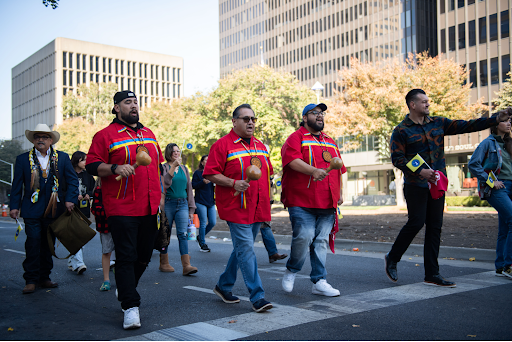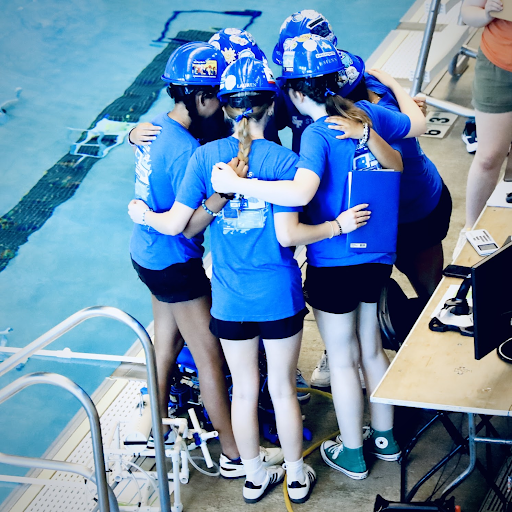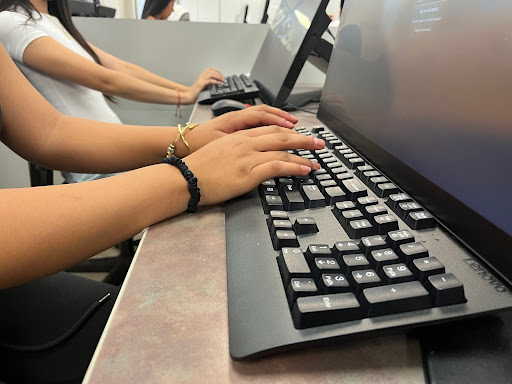America saw a nosedive in its education performance during the Covid pandemic in schools across the country – including in the Folsom Cordova Unified School District, which has used additional government funding since 2022 to support the recovery process.
With the supplemental funds, FCUSD has offered additional attention to English learners and socio-economically disadvantaged students at all school sites, said Angela Griffin, the district’s chief communications and community engagement officer.
“FCUSD allocates supplemental funding to these sites as well as recently approved grant funding called Community Schools, and additionally federal funding Title I (Socio Economic) and Title III (English language learners) that target socio-economically disadvantaged,” Griffin said. “For 2024-2025, Cordova High School will receive approximately $3 million in additional funding to support students of need, and Mills (Middle School) will receive approximately $2.2 million.”
The district has seen an increase in the number of language learners and socio-economically disadvantaged students, though FCUSD’s overall enrollment has grown at a faster rate, said Griffin.
“At this time, our local data is showing growth at all schools, post-Covid,” Griffin said. “Areas where there are high concentrations of language learners, foster youth or low seriocomic factors are showing growth too, albeit slower growth.”
While enrollment has increased, FCUSD has experienced a decline in attendance rates sparked by Covid. The district has allocated additional funding to address that problem.
“Many schools in FCUSD experienced a decline in attendance rates and an increase in chronic absenteeism,” Griffin said. “FCUSD has prioritized funding for a laser focus on a 20-day Attendance Challenge for all schools. Additionally, our Rancho Cordova schools, who were more impacted with attendance barriers, have more dollars allocated for attendance support staff. Community Schools funding has also provided additional staff and funding to help with attendance, academics, behavior and social-emotional support.”
The district also altered elementary school schedules to help improve attendance. As a result, according to district statistics, preschool-third grade attendance rates increased by 1.7%.
About 33.2% of FCUSD students are categorized as socio-economically disadvantaged, which experts say contributed to the district’s chronic absenteeism rate of 17.3% in the 2023-24 school year.
“Last year, 29.1% of our students classified as socio-economically disadvantaged were considered chronically absent (missing 10% or more of the school year),” Griffin said.
Also, according to the California Department of Education, FCUSD has about 2,699 English learners, and these students also have absenteeism and performance issues.
Against that backdrop, the district’s School Attendance Review Board set up meetings at schools with economically disadvantaged students. One result of those meetings was the virtual elimination of inadequate transportation for students who live in far-away neighborhoods.
Cordova High School principal Amy Strawn discussed how the school is using additional funds to improve students’ chances for academic success.
“These dollars are allocated based on our site goals and articulated in the Single Plan for Student Achievement (SPSA),” Strawn said. “Throughout the year, the School Site Council – which is composed of students, staff, teachers, and parents – reviews data, monitors progress and creates a budget for spending.”
With the additional money, Cordova High funds: after-school tutoring; lower class sizes in Math Foundation level courses; an instructional coach who supports all teachers and especially new teachers; math instructional coaches; an English learner program monitor who works with families, students and staff to support English learners; additional counselor supplies; professional development for staff; a health assistant; and an attendance specialist.
“We are grateful for the additional funding because this helps us support our students,” Strawn said.
Teachers said the funding has helped Cordova High recover from the Covid decline.
Dean Ortiz, an International Baccalaureate history teacher and the social studies department head, said he has seen improvements in his students.
“I think since the pandemic we are seeing better study habits and class participation,” Ortiz said. “We still have a ways to go to where we were before this hit, but it is improving. Each year we are getting better, and grades on the final IB papers are increasing.”








